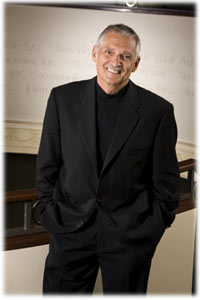 Wisconsin Lawyer
Wisconsin Lawyer
Vol. 80, No. 10, October 2007
 Nastier, noisier, costlier. That's what judicial campaigns have become in many states. The State Bar has a responsibility to keep this from happening in Wisconsin. In his concurring opinion in Republican Party of Minnesota v. White, 536 U.S. 765 (2002), Justice Anthony Kennedy wrote: "The legal profession, the legal academy, the press, voluntary groups, political and civic leaders, and all interested citizens can use their own First Amendment freedoms to protest statements inconsistent with standards of judicial neutrality and judicial excellence. Indeed, if democracy is to fulfill its promise, they must do so."
Nastier, noisier, costlier. That's what judicial campaigns have become in many states. The State Bar has a responsibility to keep this from happening in Wisconsin. In his concurring opinion in Republican Party of Minnesota v. White, 536 U.S. 765 (2002), Justice Anthony Kennedy wrote: "The legal profession, the legal academy, the press, voluntary groups, political and civic leaders, and all interested citizens can use their own First Amendment freedoms to protest statements inconsistent with standards of judicial neutrality and judicial excellence. Indeed, if democracy is to fulfill its promise, they must do so."
Improper and inappropriate candidate behavior has been successful in getting candidates elected in some past judicial races. That success may have tempted succeeding candidates to disregard traditional expectations on how judicial campaigns should be conducted. Some provisions in Wisconsin's Code of Judicial Conduct that regulate candidate conduct have become less certain in view of the White decision and the subsequent ruling of the 8th Circuit Court of Appeals on remand. Additional uncertainty also has occurred in view of a recent Wisconsin Western District Court ruling. Interest groups not subject to the Code of Judicial Conduct increasingly campaign for or against specific judicial candidates.
What is being lost in this process is the basic, important principle that judges are different than other elected officials. Judges are not political actors. They do not sit as representatives of particular persons, communities, or parties, or of associations. Judges serve no constituency. The late Chief Justice William Rehnquist put it bluntly when he said: "They (judges) must strive to do what is legally right, all the more so when the result is not the one `the home crowd' wants." 7 Pepperdine L. Rev. 227, 229-300 (1980).
As president of the State Bar, I intend to respond to Justice Kennedy's challenge by creating as soon as possible an ad hoc Wisconsin Judicial Campaign Commission for the 2008 Wisconsin Supreme Court campaign. The commission will be composed of five to nine individuals appointed to three-year staggered terms, with a majority of the members being nonlawyers. I envision that this commission will: 1) educate the public about the unique role and responsibilities of judges; 2) actively and publicly seek signed pledges from the candidates in which they will agree to adhere to the Wisconsin Code of Judicial Conduct (the pledge will be a contract between the candidate and the citizens of the state of Wisconsin); and 3) review print and electronic media campaign advertising, position papers, press releases, statements, and other materials that attempt to influence judicial election voters. The commission will issue findings regarding compliance with the requirements of the Code of Judicial Conduct and the candidates' pledge.
I envision that the campaign commission will use a Web site, a listserve, press releases, and other electronic and print resources to disseminate its findings and will actively encourage the media, civic organizations, and other groups, if necessary, to highlight these findings to voters. The campaign commission may ask candidates to withdraw any noncompliant campaign materials (if controlled by the candidate) or it may take other action it deems appropriate, such as asking a candidate to publicly repudiate noncompliant judicial campaign materials produced by third parties.
Stay tuned, and remember to be kind to each other. Promote civility in your practices. You will sleep better.
Wisconsin Lawyer
